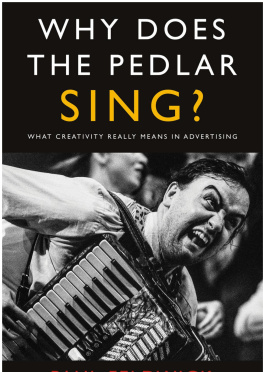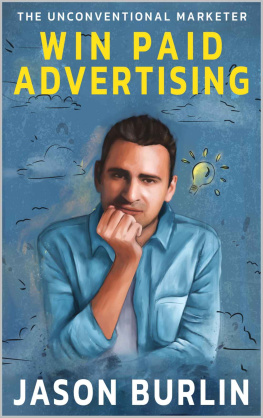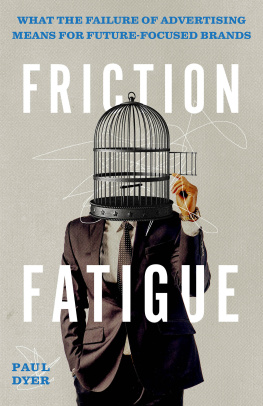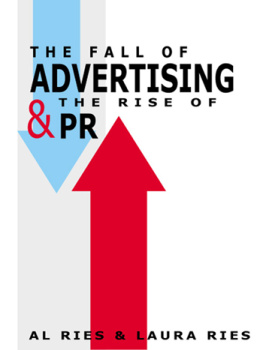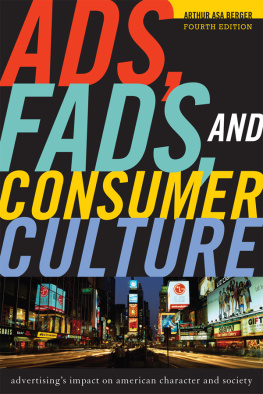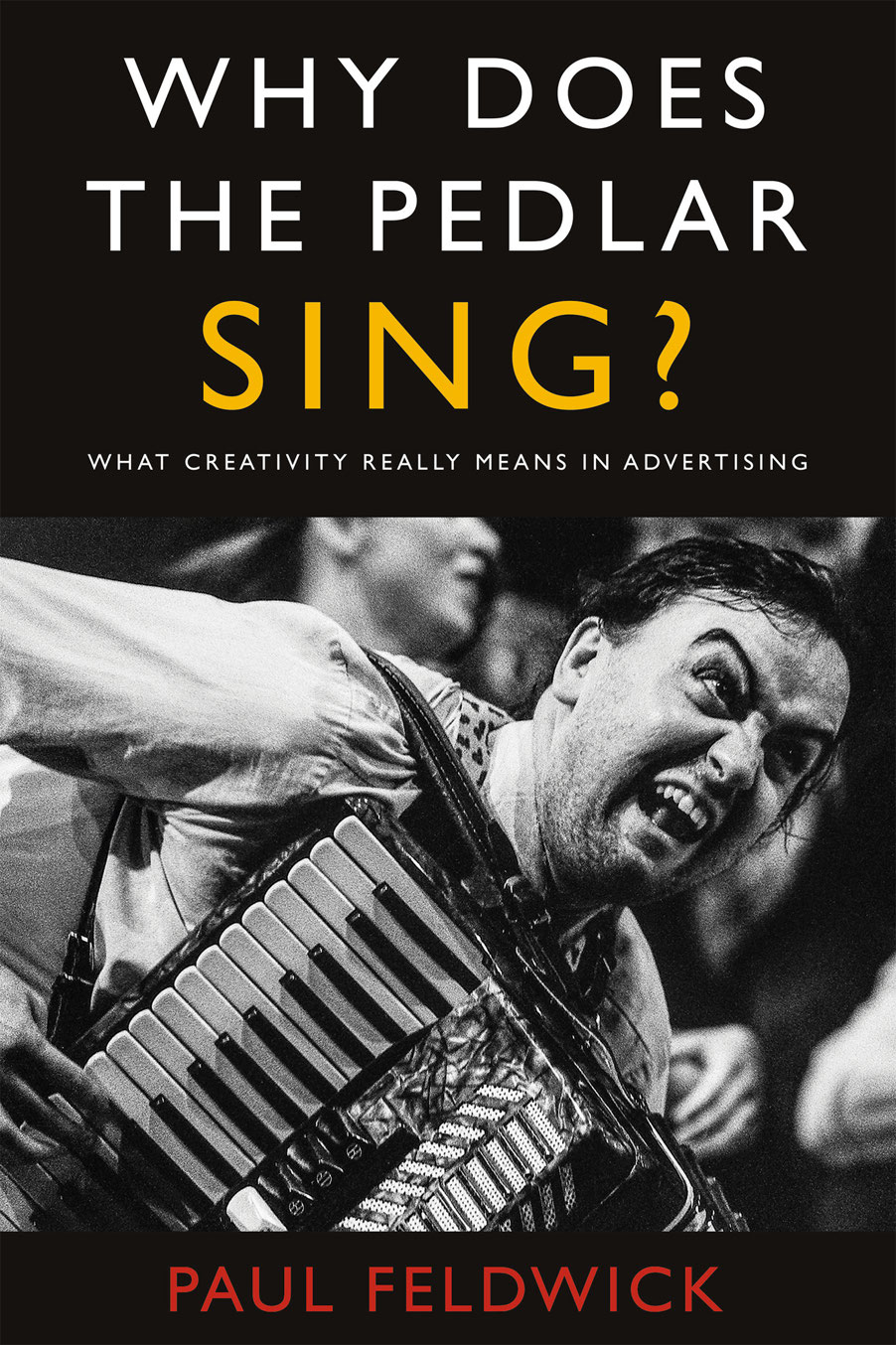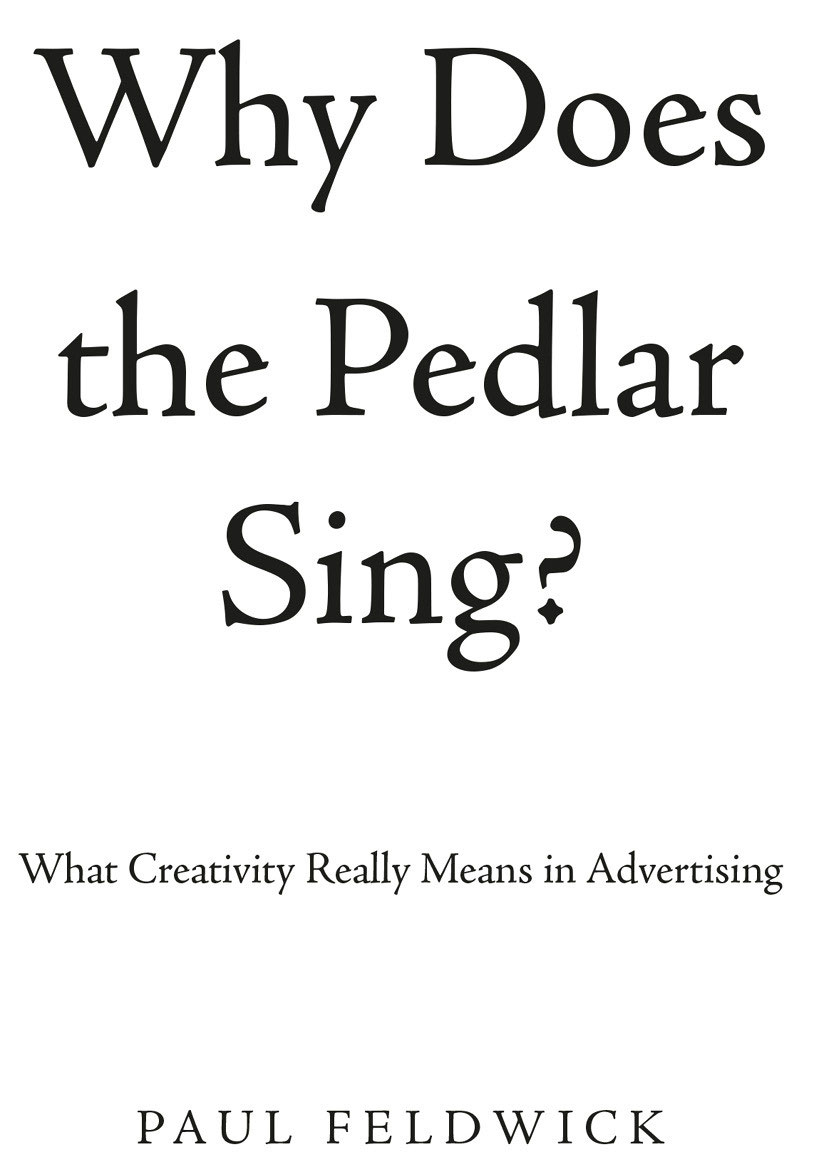Copyright 2021 Paul Feldwick
The moral right of the author has been asserted.
Apart from any fair dealing for the purposes of research or private study, or criticism or review, as permitted under the Copyright, Designs and Patents Act 1988, this publication may only be reproduced, stored or transmitted, in any form or by any means, with the prior permission in writing of the publishers, or in the case of reprographic reproduction in accordance with the terms of licences issued by the Copyright Licensing Agency. Enquiries concerning reproduction outside those terms should be sent to the publishers.
Matador
9 Priory Business Park,
Wistow Road, Kibworth Beauchamp,
Leicestershire. LE8 0RX
Tel: 0116 279 2299
Email: books@troubador.co.uk
Web: www.troubador.co.uk/matador
Twitter: @matadorbooks
ISBN 978 1800468 993
British Library Cataloguing in Publication Data.
A catalogue record for this book is available from the British Library.
Matador is an imprint of Troubador Publishing Ltd
O master! If you did but hear the pedlar at the door, you would never dance again after a tabor and pipe; no, the bagpipe could not move you: he sings several tunes, faster than youll tell money: he utters them as he had eaten ballads, and all mens ears grow to his tunes
shakespeare, The Winters Tale, Act IV
Also by Paul Feldwick
The Anatomy of Humbug
Fascinating and superbly written. It takes us from the beginning of the modern era of advertising up to the present, with charming anecdotes and intelligent analyses of the people and ideas that have made us the struggling, bewildered ad hacks we are today.
Bob Hoffman, author of Advertising for Skeptics
No-one has previously discussed the various practitioner theories of advertising so comprehensively. Its a great story, and I learned a lot.
Patrick Barwise, Emeritus Professor of Management and Marketing, London Business School.
An elegant overview of the history of advertising theory, with the added joy of being filtered through the immense wisdom, experience and brain of this advertising guru.
Tess Alps, former Chair, Thinkbox
A thoughtful and beautifully written reflection on the history of advertising practice.
Nigel Hollis, author of Brand Premium and former Chief Global Analyst, Millward Brown
The Anatomy of Humbug: How to Think Differently About Advertising
is available from Matador as hardback, ebook, and audiobook.
Contents
| Preface A Serious Business? |
| Part One The Pedlar At The Door |
| Chapter One | Richard Lathams Rug |
| Chapter Two | From Salesmanship to Showmanship |
| Chapter Three | Who Framed Sunny Jim? |
| Chapter Four | Because singers sell soap, Mr Norman |
| Part Two A Kind of Fame |
| Chapter Five | From Barnum to Brands |
| Chapter Six | David Beckhams Sarong |
| Chapter Seven | Energy, Essence and Icons |
| Chapter Eight | A Face in the Piazza Navona |
| Part Three Four Facets of Fame |
| Chapter Nine | Broadcast to Go Big |
| Chapter Ten | Make the Monster Massive |
| Chapter Eleven | Give the Lion Wings |
| Chapter Twelve | Infinitely Multiply |
| Part Four What Kind of Creativity Do We Need? |
| Chapter Thirteen | The C Word |
| Chapter Fourteen | Blowing Shit Up |
| Chapter Fifteen | The Dark Interloper |
| Chapter Sixteen | The Trouble With Ideas |
| Conclusion Reclaiming Creativity |
| Bibliography |
Preface
A Serious Business?
Advertising is a serious business, and advertisers spend serious money investing in it. Yet from the earliest times, much advertising has been far from serious in its appearance, featuring song and dance, celebrities, cartoons, talking animals, childish jingles, low humour, and all the other tropes of popular culture.
Indeed, its vulgarity has often offended commentators as much as its questionable morals. The Austrian economist, Ludwig von Mises, was a stalwart defender of the freedom to advertise, yet he believed that
Like all things designed to suit the taste of the masses, advertising is repellent to people of delicate feeling.
Sadly, those people of delicate feeling have often included not just advertisings critics, but many of its own clients, and even quite a few in the ad agencies themselves. Embarrassed by advertisings all-too-obvious and inescapable links with popular culture, they have constructed for it an alternative persona advertising as an honest salesman, which offers its audiences only sober facts and rational benefits.
This is not wrong, but it only represents a part of what advertising does and perhaps not even the most important part. For many years, this double-think made it harder than it need have been to produce effective advertising; but it did not make it totally impossible. I worked for thirty years in an agency where we repeatedly succeeded in smuggling a cast of dancing polar bears, laughing aliens and singing chimpanzees past the barriers of selling propositions, consumer benefits and reasons why.
Today we probably understand the psychology behind the apparent fluff and nonsense of advertising better than ever before. Concepts like mental availability and the affect heuristic, the largely unconscious nature of mental associative networks, the importance of the right brain hemisphere in connecting emotions, images, and memory, all these (as we shall see) begin to explain why puppies, clowns, or monkeys on bicycles create liking and fame, which are what build valuable brands. Thanks to the published research of Byron Sharp and Jenni Romaniuk, Peter Field and Les Binet, Orlando Wood, Robert Heath and others, we know the importance of stories, emotions, slogans, music, and distinctive brand assets in making advertising that works.
All the more odd, then, that so many of todays ad agencies and their clients appear to ignore all this, or even to do the exact opposite. While more money is spent on advertising worldwide than ever before, theres evidence that it is now less effective, and more disliked by the public, than it has ever been. Thirty years ago, a majority of the British public agreed that Sometimes the ads are better than the programmes the proportion who agree with that today is vanishingly small. Instead, the vast majority of the younger generation now deliberately avoid any exposure to advertising at all.
There will be those who object that the world has changed. That todays techniques of individual targeting and personalisation in the digital space have superseded the old analogue needs to be engaging, entertaining, or memorable. But the reality is that, while the internet has transformed so many aspects of our lives and our commerce, it will never transform the fundamental psychology behind advertising and brands. Jeff Bezos knew, when he started Amazon, that Brand names are more important on-line than they are in the physical world; the most important search engine remains the one in your head. Meanwhile, those who fail to understand how humans actually make choices will go on wasting immense sums of money on the emperors new clothes.

